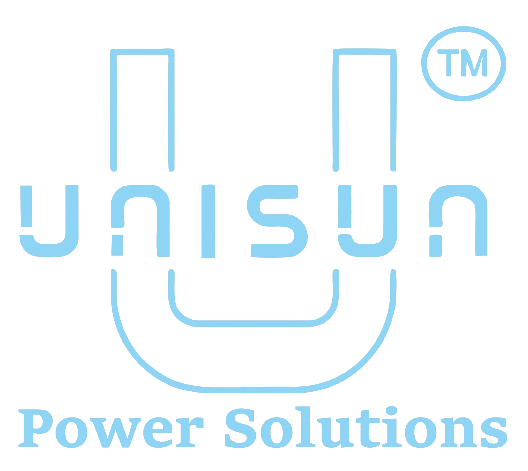
If you’re setting up a solar power system, one of the most important decisions you’ll make is choosing the right solar inverter.
Your solar inverter is the heart of the system—it converts the DC power from your solar panels into usable AC electricity for your home or business. But there’s no one-size-fits-all solution. The right choice depends on your location, electricity needs, and whether you want backup during power cuts.
Let’s break down the three main types of inverters—on-grid, off-grid, and hybrid solar inverters—so you can make a smart, informed decision.
What Is a Solar Inverter?
A solar inverter is a device that converts the electricity produced by your solar panels (which is in DC—Direct Current) into AC (Alternating Current), which is what your appliances use.
Whether you’re building an on-grid solar system, going completely off-grid, or choosing a hybrid setup, the inverter plays a crucial role in your system’s performance.
1. On-Grid Solar Inverter (Grid-Tied Inverter)
What it does:
An on-grid solar inverter works when connected to your local electricity grid. It converts solar energy into AC power and sends excess electricity back to the grid.
How it works:
Solar panels generate power.
The on-grid inverter converts it into usable electricity.
Extra electricity is exported to the grid (you may get credits if your area has net metering).
You use electricity from the grid when solar isn’t enough (like at night or cloudy days).
Best for:
Urban homes and offices with reliable electricity
Customers looking to reduce electricity bills
Locations where net metering is available
Pros:
Lower initial cost (no batteries required)
Simple setup
Maximizes savings on monthly bills
Cons:
Doesn’t work during power outages
Needs grid connectivity to operate
2. Off-Grid Solar Inverter
What it does:
An off-grid solar inverter is used in systems that aren’t connected to the electricity grid. These systems rely on solar batteries to store power.
How it works:
Your solar panels charge the batteries during the day.
The off-grid inverter pulls power from the batteries and powers your home.
Ideal for remote or rural areas without grid access.
Best for:
Farms, villages, and remote properties
Homes that want complete energy independence
Areas with frequent or long power cuts
Pros:
Full control over your power supply
Works even during blackouts
Ideal for areas without electricity access
Cons:
Higher cost due to battery storage
Requires regular monitoring and maintenance
3. Hybrid Solar Inverter
What it does:
A hybrid solar inverter is a smart solution that combines the features of both on-grid and off-grid inverters. It connects to the grid and can also store energy in batteries.
How it works:
Uses solar power directly during the day.
Stores extra energy in batteries.
Can supply power during grid failures.
Sends excess power to the grid when possible.
Best for:
Cities and towns with unstable power supply
People looking for savings plus power backup
Homeowners planning to add batteries later
Pros:
Reliable and flexible
Provides backup during outages
Reduces dependency on the grid
Cons:
Higher installation cost
Slightly complex setup
Quick Comparison Chart
| Feature | On-Grid Inverter | Off-Grid Inverter | Hybrid Inverter |
|---|---|---|---|
| Requires grid | Yes | No | Optional |
| Uses batteries | No | Yes | Yes (optional) |
| Works during blackout | No | Yes | Yes |
| Best for | Cost savings | Remote areas | Backup + savings |
How to Choose the Right Solar Inverter for Your Needs
Here’s a simple guide based on your situation:
Want to reduce electricity bills and have stable power? Go for an on-grid solar inverter.
Living in a remote area with no grid connection? Choose an off-grid inverter with batteries.
Need backup during power cuts and also want to save money? A hybrid inverter is the smart choice.
Choosing the right solar inverter for your home or business comes down to your needs:
Do you want to lower electricity bills?
Do you need backup power?
Are you in a rural or urban area?
Each inverter type has its pros and cons, but with the right setup, you can enjoy reliable, renewable energy for years to come.
Need help picking the perfect solar solution?
At Unisun Power Solutions, we help you choose and install the right inverter—whether it’s on-grid, off-grid, or hybrid—based on your location and budget.
